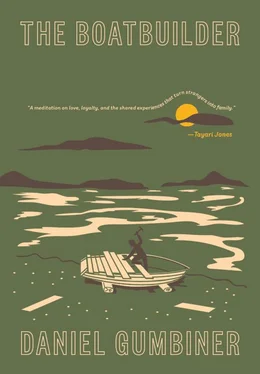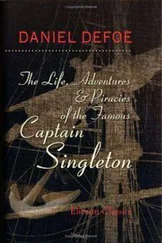Uffa took a sip of his chi chi.
“Sometimes Alejandro can be so stubborn,” he said. “Especially when he gets into one of his states. You haven’t seen that before. He gets obsessed with a thing and then he just spirals downward.”
“I remember when he was into those lutes,” Berg said.
“Yeah, that was a minor version of what I’m talking about. He kept that under control. What I’m talking about is when he really loses it. I’ve gotten calls from Rebecca twice where she asked me to drive up from Oakland to speak to him, calm him down. He gets trapped in his own mind, can’t stop agonizing over things. You heard about the pigeons, right?”
The whole episode started, Uffa explained, when Alejandro saw a pigeon tumble from the sky to escape a hawk. This was not an uncommon thing for pigeons to do: to fake a fall to escape a hawk and then continue flying. But this bird did not continue flying. It fell and crashed into the earth. The same thing happened a month later and then again a few weeks after that. Alejandro read everything he could about tumbler pigeons but he was unable to find anything that accurately explained this phenomenon. So he began to breed pigeons himself, to try to figure out what made some of them skilled tumblers and what made others fall to their death. He built over ten cages, bred hundreds of pigeons.
“By the time I got up here,” Uffa said, “he looked terrible. He hadn’t been eating well. He smelled bad. Like a pigeon, honestly. He smelled like a pigeon.”
“What did you do?” Berg asked.
“I just talked to him about the pigeons. I listened. That’s the only thing you can do.”
On the television, the game had ended. The Mississippi quarterback was giving a post-game interview, stating obvious things. Berg was almost done with his beer.
“So are you going to start the MFA next fall?” he asked.
“Oh, no, not that soon,” Uffa said. “Can’t afford it. That was more like a five-year plan. I was just throwing it out there.”
DEMETER WORE LARGE SWEATSHIRTS and tights. Her teeth were ragged and serrated, but this somehow only added to her fierce beauty. She’d moved to Talinas with her mother in high school and the two of them now ran a Pilates studio in town. Recently, it had been revealed that Demeter’s mother disapproved of her relationship with Uffa, whom she saw as a bad influence.
“I know the type,” she had reportedly told Demeter. “Rolls into town with a school bus and lots of talk about free expression.”
But Leanne’s indictment of Uffa did not seem to deter Demeter. Berg saw her around the bus more and more. She said she was saving up money to move to New York City and become an actor. Earlier that year she’d had a role in a Talinas Community College student film, which Uffa had screened on the bus with a projector. It was not good. This was not Demeter’s fault. The finest of actors could not have rescued the script, which was about a young man who was upset that his girlfriend didn’t take his band seriously enough. Uffa was particularly frustrated by the main male character.
“If he wants someone to care about his band,” Uffa had said, “he’s just gotta be his special regular self. He’s all up in his head, man. No time for that.”
One Saturday evening found Demeter, Berg, and Uffa hanging out on the bus, about to head down to the farmhouse for dinner. Demeter was sitting at the desk, drawing something Berg couldn’t see. Uffa was taking shirts out of his milk crates and smelling them, trying to find a clean one.
Uffa wanted to have another bus show but he was tired of hosting them at Alejandro’s house. The two of them were on better terms since their argument that day on Estero, but Berg could tell that Uffa didn’t feel like asking Alejandro for any favors.
“How do we get into the Oysters stadium?” Uffa asked, pulling another shirt out of his milk crate. “That’s what I really want to do. Have a show in the stadium.”
“You’d have to ask Walt Weir,” Demeter said, without looking up. “He’s the basketball coach, but he also manages events at the stadium. He was coaching the girls team when I was in high school but now he coaches the boys.”
“Coach man,” Uffa said. “Okay, we can do that.”
“I played on his team for a year in high school,” Demeter said. “He’s a cool guy. You’ll like him. He’s kind of a legend around here. He was an amazing athlete in his time and people still revere him. Tell him you know me.” Demeter set down her pencil. “I gotta go,” she said. She stood up and kissed Uffa on the cheek.
“You’re not coming to dinner?” he asked.
“Nah, mom wants to have dinner,” she called as she stepped off the bus.
After she was gone, Uffa turned to Berg.
“Gotta keep Mama Shark fed,” he said.
Berg and Uffa drove over to the high school the following day to see Walt. They listened to the radio as they drove. Morty Weisenstein was on the air. His show featured ambient music, calypso, and Afro-Cuban music, and he was always shifting in and out of different DJ personas. Today, for example, he was hosting the show as the rabbi and musicologist Dr. Baruch Baruch, and he was making the argument that calypso had Hebraic roots.
“There is a similar lyric about bananas in the Mishnah,” he said. “Although obviously it does not reference bananas. They had no bananas in Jerusalem, lamentably. But the connection goes very deep, you see. It’s very profound and it has international implications.”
Inside the gym, Walt Weir was pacing up and down the sidelines, wearing a tie-dye shirt and green sweatpants. Berg thought he looked a little bit like an older Uffa, but he didn’t say that. The gym smelled like sweaty polyester and old wood and rubber. Berg and Uffa took a seat on the bleachers and watched the scrimmage. One of the bigger players drove to the hoop from the right side and was fouled as he went for a layup.
“Take it strong, Jaylen,” Walt said. “Throw it down, big man. Throw it down once for me.”
“I can’t dunk, coach,” Jaylen said as he was running back on defense.
“Then finish strong and fluid, Jaylen,” Walt called after him. “Stay loose. This is basketball. This is poetry. This is a dance. You should be dancing up and down the floor.”
Jaylen nodded and picked up his man on defense. The other team set a series of off-ball screens and then their point guard drove to the hoop. He attacked the right side and attempted a floater but Jaylen had cycled over to help and swatted the shot out of bounds.
“Yes, Jaylen!” Walt shouted. “That is leadership. That is courage. That is basketball. That is poetry. This is what I am talking about.”
When the scrimmage was over Walt gathered the players together and ran over the coming week’s schedule. They would have strength and conditioning every day and another open gym that Sunday.
“We are improving,” Walt said. “We’re getting better every day, but we’ve got to play with confidence. ‘He who hesitates is lost.’ Who said that? That was Pete Harrison, one of the greatest basketball coaches in the history of California. Perhaps one of the greatest coaches in the history of Western civilization. I had the privilege of going to his big man camp when I was younger. A wonderful, wonderful man. You know what else he said? ‘Balance is the building block of good basketball.’ We’ve got to stay grounded, we’ve got to stay composed. Run our offense, get our looks. The shots will drop. That’s straight out of the mouth of the great Pete Harrison. Being with Pete on the court was like walking through Yosemite with John Muir, like traveling the Missouri River with Sacagawea, like hanging out on the beach with Eddie Aikau. Are you picking up what I’m putting down? Okay, bring it in. ‘Seals’ on three. One, two, three: Seals! See you tomorrow.”
Читать дальше












